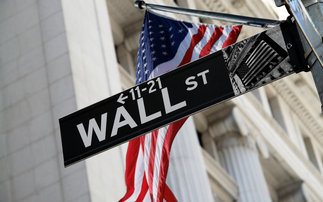
This has been a tough year for sustainable equities. After two years of extraordinary returns, a combination of increasing interest rates which has pressured valuations of higher-quality stock and the war in Ukraine sending oil prices and energy stocks soaring had made 2022 challenging for sustainable stocks. However, we see reasons to be more positive going into 2023.
Whilst fluctuations in valuation and sentiment drive short-term returns, company earnings matter far more for long-term returns, and this is where we choose to focus our efforts. The five key themes the fund is invested in (clean energy, financial inclusion, health care Innovation, improving resource intensity, and infrastructure decarbonisation) remain as powerful growth drivers as ever, giving us great confidence in the long-term earnings potential of the companies we invest in. It is important not to lose sight of these powerful structural drivers in times of higher volatility, like we see today.
What could surprise markets in 2023?
One risk we are paying close attention to for 2023 is labour availability and wage inflation. The labour market has proved much tighter than most expected this year, which has translated into higher wage inflation and lower profit margins for employers. Although announcements of hiring freezes or layoffs are now (sadly) a daily event, without a significant improvement in labour availability next year, we think persistent labour inflation could cause margins to surprise negatively in 2023.
The silver lining here is that the best way to tackle labour availability and cost is by investing in productivity. We think companies have been under-investing for decades, with capex and R&D spending fall from 70% of cash use in 1990 to 40% today, contributing to the problem we find ourselves in today. While the market expects companies to tighten their belts on capital spending into 2023, we think that capital expenditure could surprise positively, particularly in areas that relate to efficiency, such as robotics and automation. The reshoring trend, as companies localise supply chains, also boosts the prospects of higher capital spending over the coming years.
Share of total S&P 500 cash use - Companies now spend the most on buybacks and dividends
We expect the pressures of higher inflation and interest rates to weigh on the more cyclical areas of growth and we are therefore shifting the fund's exposure to more secular growth areas which we expect to perform better in 2023. For example, we have reduced exposure to areas such as US housing, which will likely suffer from a sharp slowdown in demand as mortgage costs rise. The good news is that we see a number of end-markets with an improving growth outlook - something that will likely be in short supply in 2023. The recently enacted Inflation Reduction Act in the US will spark significant growth in decarbonisation investments in the US, to which the fund has significant exposure through stocks such as Quanta Services, SolarEdge and Orsted.
Positioning for what lies ahead in 2023
In what has been a challenging year for the market as a whole, our exposure to US healthcare insurance (UnitedHealth and Cigna have both delivered positive share price performance YTD) has been very positive, along with names exposed to the growth in US infrastructure spending (such as Quanta Services and WW Grainger). Meanwhile, our interest rate sensitive names (emerging market banks like Bank Rakyat and HDFC, as well as German stock exchange Deutsche Boerse) have benefitted significantly from higher interest rates.
Looking to 2023, we expect to be even more discerning on both valuations and the cyclicality the businesses we own or look to add. Whilst we have sympathy with the view that most of the pain is behind us when it comes to the effect of rising interest rates on valuations, we still think that many high-growth parts of the market look expensive, particularly those unsupported by strong cash flow generation. We will remain focussed on finding companies with strong secular growth potential driven by the five key trends we invest behind, but that also produce significant cash for (ideally for reinvestment into the business at high returns), and trade at valuations that make sense even in this higher rate environment.
Sustainability considerations
Sustainability is at the centre of every investment we make. We combine a best-in-class approach (companies that operate their businesses in a sustainable fashion with strong governance) with an impact approach (companies whose products and services have the potential to make significantly positive contributions to the environment and society). This leaves us with a portfolio of 40-60 high-quality stocks that all make a significant contribution to a wide range of challenges facing us today such as decarbonising our energy supply, improving healthcare outcomes, improving energy efficiency, and bringing millions of under-served people into the formal banking and insurance market. Crucially, given our focus on companies with strong financial and valuation profiles, these are stocks we think have to potential to deliver this positive impact whilst also delivering good financial returns for shareholders.
We would expect the focus in 2023 to be on particularly on stocks involved in clean energy and improving resource intensity and productivity. With spiking energy costs globally, companies that can deliver low-cost energy, or offer products that can improve energy efficiency are likely to be in high demand, even against a backdrop of slowing growth. We think these categories, which represent close to 50% of the fund, will be interesting areas to watch in 2023.
Find out more about the Fidelity Sustainable Global Equity Fund
This post is funded by Fidelity International
Important information
This content is for investment professionals only and should not be relied upon by private investors.
The value of investments can go down as well as up and clients may not get back the amount invested. Investors should note that the views expressed may no longer be current and may have already been acted upon. Reference to specific securities should not be interpreted as a recommendation to buy or sell these securities, but is included for the purposes of illustration only. Changes in currency exchange rates may affect the value of an investment in overseas markets. Investments in emerging markets can be more volatile than other more developed markets. The Fidelity Sustainable Global Equity Fund has the potential of having high volatility either due to its composition or portfolio management techniques. It can also use financial derivative instruments for investment purposes, which may expose it to a higher degree of risk and can cause investments to experience larger than average price fluctuations. A focus on securities of companies which maintain strong environmental, social and governance ("ESG") credentials may result in a return that at times compares unfavourably to similar products without such focus. No representation nor warranty is made with respect to the fairness, accuracy or completeness of such credentials. The status of a security's ESG credentials can change over time. Issued by Financial Administration Services Limited and FIL Pensions Management, authorised and regulated by the Financial Conduct Authority. Fidelity, Fidelity International, the Fidelity International logo and F symbol are trademarks of FIL Limited. UKM1122/380804/SSO/NA













